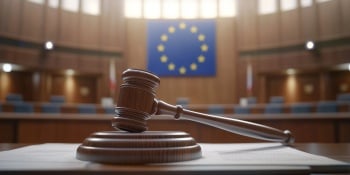Published: 21.03.2023

· The European Commission has organized an annual review of the state of the rule of law in all EU countries.
· The Ordo Iuris Institute has again been invited to take part in the consultation of the report.
· The result of the consultations will be the preparation of a European Commission report on the state of the rule of law in Poland.
· Representatives of the Institute in their speeches stressed, among other things, the need to introduce legislative solutions to raise the standard of transparency in the financing of NGOs.
As part of the annual review of the state of the rule of law in all EU member states, the Ordo Iuris Institute received an invitation to participate in consultations of the report being prepared by the European Commission. This year's meeting was devoted to a discussion of the independence of the judiciary, the anti-corruption framework, media freedom, the functioning of NGOs in Poland, the situation on the Polish-Belarusian border or, finally, the disbursement of funds to NGOs.
In their speeches, the Institute's representatives stressed, among other things, that civil society in Poland enjoys great freedom to take action, regardless of what demands it formulates. The Institute also supports legislative measures to raise the standard of transparency of NGO funding, especially foreign funding. The introduction of such solutions would be particularly important in an era of strong disinformation and mutual accusations of obtaining foreign funds, and would also increase the transparency of public debate by imposing an identical obligation for domestic and foreign entities, which would counter any accusations of possible violations of the free flow of capital and the right to free association.
The last version of the rule of law report was published in July 2022. It addressed four main areas that have a significant impact on respect for the rule of law: national justice systems, the anti-corruption framework, pluralism and media freedom, and institutional issues related to checks and balances of power important for the smooth functioning of democracy. A new element of the third edition of the report was the identification of specific recommendations for member countries in the above areas. The meeting was organized as part of the national consultations preceding the preparation of the European Commission's report on the state of the rule of law in the EU in 2022 and 2023. The purpose of the meeting was to discuss the issues covered in the report.
The recommendations the Commission made to Poland in July included: separating the functions of the Minister of Justice and the Prosecutor General, and ensuring the functional independence of the prosecutor's office from the government. The EC also recommended introducing legislation to regulate lobbying and a standard online system of asset declarations for public officials, as well as MPs and senators. Among the recommendations, moreover, were ensuring independent and effective preliminary and judicial proceedings, as well as ensuring fair, transparent and non-discriminatory procedures for granting broadcasting licenses to media entities. The commission also recommended improving the operating conditions for civil society and the Ombudsman.

• The European Union’s Council Conclusions on EU Priorities in UN Human Rights Fora in 2025 identify key areas of EU human rights activities at UN fora and refers to several universal human rights, such as freedom from torture and freedom of religion or belief.

• Last week, experts from the Ordo Iuris Institute attended the 69th session of the UN Commission on the Status of Women (CSW) in New York, the largest global gathering of countries and organizations focused on women's rights.

A wave of hysteria erupted last week following the presentation of a blueprint for sweeping reforms of the European Union at the Heritage Foundation's headquarters in Washington. Poland’s Foreign Minister Radosław Sikorski even suggested that the Ordo Iuris Institute was advising Donald Trump's administration.

As the Advocate General of the Court of Justice of the European Union (CJEU), Dean Spielmann, pointed out in an opinion issued on March 11 regarding the primacy of EU law over national constitutions, Poland has violated its obligations t